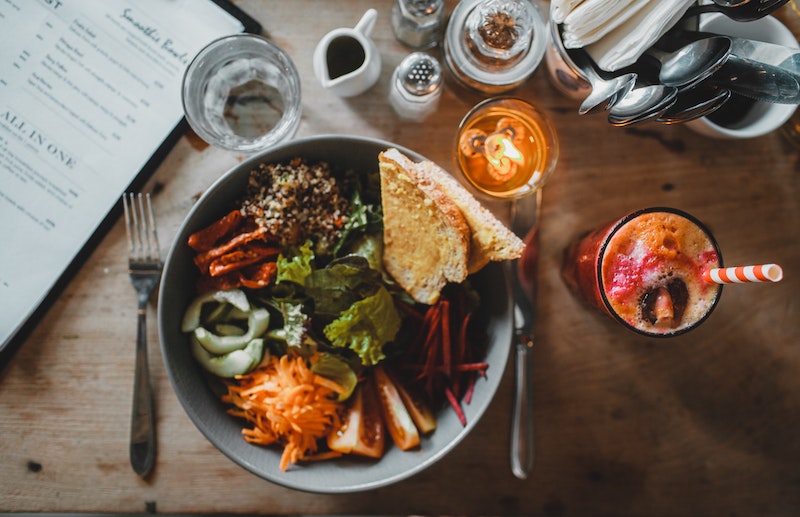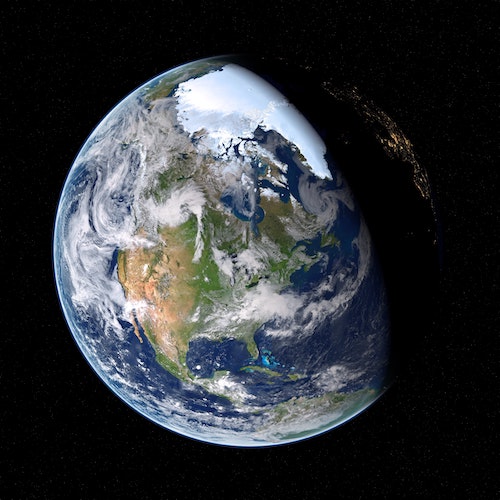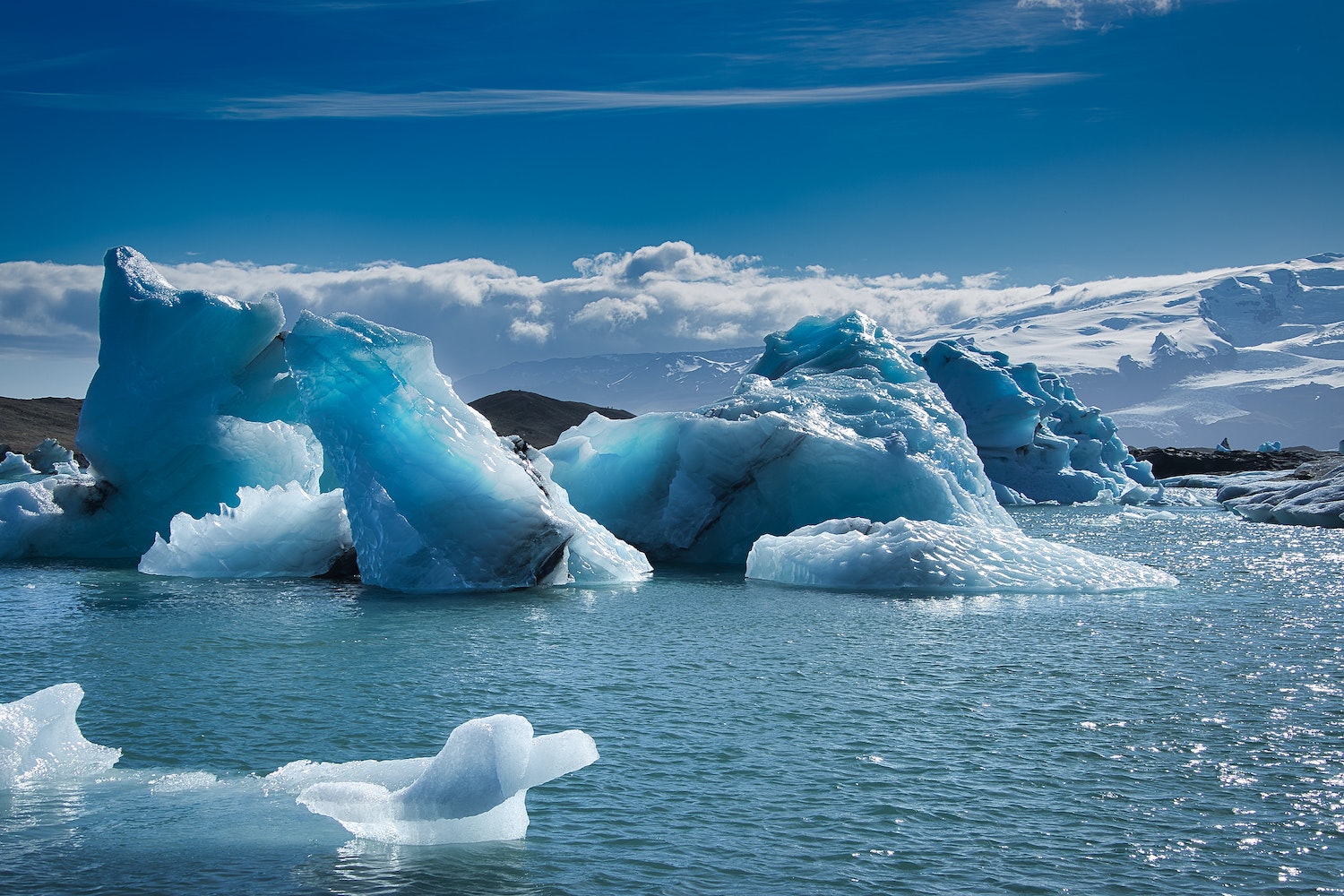Global warming is a real issue affecting us now and more so in the coming years. We see the effects to some degree already. From abnormal weather patterns, exceptionally freezing Winters, to flash flooding and prolongued droughts.
Global warming is nothing new. In fact scientists from Exxon mobile knew about it 40+ years ago. Yet these corporations continue to fight and lobby against the science, paying off politicians and putting out bogus messaging. Why? Well it’s simple, their goals are shortsighted and they are greedy. Their only interest is that of lining the pockets of their shareholders and investors.
Sure, our planet goes through natural cycles of warming and cooling, but it’s been proven that our advancements through the industrial revolution up till today have rapidly and unnaturally accelerated this process.
This post is a departure from the usual trail and running focused content I write. It’s an important topic that we all need to concern ourselves with, and I want to dedicate some time and space here for it.
What can we do to combat global warming?
As consumers, the ball has landed in our court to help fight the way things are. We have buying power and as such we can collectively influence how the world works. By collectively changing our ways we can force these large corporations and industries to adapt to our more climate-friendly needs.

In this post I want to detail some of the changes my family and I have made to help the fight against polution and climate change. They are fairly small changes, but if we all made small changes like these, collectively the change would be great.
My hope is that some of these ideas will help influence you to make a positive change yourself. And if you have already begun to adapt and change your lifestyle, maybe these ideas will inspire you in different ways.
Making the change
Here is a list of changes we’ve made to our lives to help reduce our impact on the earth’s ecosystems.
Vegetarian lifestyle (mostly)

My wife and I are now “most of the time” vegetarians. We changed from eating meat daily to only eating it once on a rare occassion. Maybe once every couple of weeks. We’ve been doing this for at least 3 years now.
There are a couple of ideas behind this. One is that it takes a lot of water to raise cattle. Another is that countries are clearing huge amounts of forest and natural landscape, ruining it, just for the purpose of cattle farming. It takes a lot more land to raise animals than it does to grow food.
Our oceans are also completely overfished. By collectively rejecting meats we can help reduce cattle farming and overfishing.
There is a worrying set of misconceptions about plant based diets. I’ve spoken with others about my choice in eating a mostly vegetarian diet, (as well as vegan diets). I’ve heard many selfish and absurd responses such as:
- “Vegans are generally assholes. Vegetarians are a better breed”
- “I like to mix meat with vegan foods when cooking for others, just to spite them”
- “Your body needs protein and iron from meat”
- “Humans are designed to eat meat”
The above comments I’ve heard are completely unfounded, untrue, and beyond all else, selfish. These come from others my age who also have kids. It troubles me that they don’t seem to care about the fact that their kids will have a bleak future if we don’t all adapt and change the way we eat. What about their children’s children? I won’t even get into the completely shortsighted and biased remarks about one’s dietary choices dictating what kind of person they are.
It’s also proven that a plant based diet can provide you with every bit of protein and vitamin your body needs. It’s not difficult to get it right. There are many elite vegan athletes out there that are living proof.
It’s a common misconception that vegetarians or vegans are weaker than meat eaters. For the past couple of years I’ve run a number of ultra marathon distance events, proudly fueled by plants. I haven’t seen any negative effects of eating 97% vegetarian.
In terms of taste, in my own experience vegetarian food is just as delicious. I’m not a great cook myself, but I’m lucky to have a wife who is an excellent cook and has a knack for mixing the right flavours and ingredients.
Off the shelf vegan and vegetarian products are highly competitive now. Beyond burger patties taste better than the real thing to me. We’ve also found numerous “chicken replacement” style foods made from pea protein that honestly make it impossible to tell the difference between the real thing (try them in a pie, or pasta dish).
Making changes at home
Plastic and chemical pollution is ruining our environment and ecosystems. It is rapidly destroying our planet’s delicate balance. We’ve started changing our buying and consuming habits to combat the amount of plastic and chemicals we use.

- We avoid buying one-use plastic consumerables such as soap, washing liquids, shampoos, etc… Instead we have dispensers that we refill as much as possible. We use eco-friendly soaps otherwise (ocean friendly). When re-filling if we need to buy more plastic bottles, we’ll get much larger bottles to reduce plastic use (many smaller plastic bottles equals more waste)
- We wash our clothes with “soap berries”, also known as “soap nuts”. These berries contain an ingredient that acts as a detergent. We place a handful of them in a cloth zipper bag and throw that in with the clothes. They work really well!
- Use re-usable material bags for fruit shopping. We pick and buy our fruit unpacked and use a few re-usable bags. Reject any form of packaged fruit if you can. Especially plastic packaged fruit.
- For dishwashing we use “smol” dishwasher tables. They come in recyclable cardboard packaging and are eco-friendly.
- We use “oceansaver” surface cleaners. These are plant-based and come in cardboard packaging. We simply add this to our re-usable spray bottle.
- For toilet paper, we use the “bamboo” brand, (no plastic, comes in cardboard packaging). The toilet paper itself is made from bamboo – higher sustainability compared to traditional.
- We’ve switched to biodegradable toothbrushes (made from wood).
- Use scrubbing brushes made from naturally growing loofa sponge plants.
- All of our sauces and condiments for cooking and eating are packaged in glass, tin, or cardboard. (No plastics). Glass is great for recycling. For glass, we also try to avoid anything with plastic lids. For example instead of glass jar peanut butter (with a plastic cap) we use local peanut butter product that comes as a tin (like a paint tin).
Although it’s questionable where local recycling ends up, we always make an effort to separate out and clean all of our rubbish into the various recycling categories for collection.
When shopping, avoid plastic wherever possible. Scrutinize consumerables and their ingredients.
Don’t go for those easy spreads like butter and chocolate spread that use palm oil, go for the natural ones instead.
Reducing our energy needs

Energy sources
We’ve recently moved house, but we had a 3 kW/h solar panel installation on our previous house. This significantly reduced what we used from the grid, and also fed back any excess electricity generation into the grid. We plan on installing more solar in our new house.
Edit* our current house now has a 6.5kw/h solar with 10kw/h battery storage. In Summer we almost exclusively supply our own energy now. The excess is fed back into the grid. Sadly, it’s not enough in Winter and we still rely on oil and wood for heating. Hopefully we can improve on that in future.
When choosing energy suppliers, we try to use those which actively work on solutions to global warming and climate change. We look for suppliers who source their electricity from 100% renewables such as wind and solar.
Travel
We’ll most likely switch to an electric vehicle the next time we change vehicles. We’re just waiting on the sweet spot in terms of cost versus fossil fuel based to arrive (which seems to be soon – perhaps in the next 5 years).
Electric vehicles are not the perfect solution to combat global warming, but they’ll definitely help and are a must if we are to release ourselves from the shackles of fossil fuels.
For outings we try to stay local. Almost all of my trail running starts at home and ends back at home. I rarely drive to locations in order to start runs. We use our bicycles and do local walks when going out with the kids.
Appliances
When purchasing appliances we do our best to find those with excellent energy efficiency. We’ll also use energy saving features where possible. For example:
- Fridges with separate compartments that retain cold better when the door is opened and closed.
- Our kettle has a “thermos flask” design. Boil it once and it retains heat for about an hour. If you need another cup of hot water 30 minutes later you usually don’t need to boil again, and if you do, it’ll only take a few seconds to get back to boiling temperature.
- When choosing a TV or monitor we pay attention to energy efficiency. Different types of panels have different energy usage characteristics. We’ll also set them to automatic or eco-modes that automatically dim the LEDs or backlighting (less power consumption) when possible. Also, be sure to check energy star ratings when purchasing.
Running choices
As this site is running focused, I’ll start out with an obvious one for races and events. Don’t choose the free t-shirt, and avoid plastic bottled water. You don’t really need that free event t-shirt do you? Stick to the medal and your paper bib for mementos.

Bring a collapsible cup and water flasks to refill your own water.
Going forward
I encourage you to reject the normal practices we have adopted as consumers. Make small incremental changes if you have to, but if you care about our future and our future generations then we all need to be taking steps in the right direction now to reduce our impact on the planet. We must fight global warming together.

Live more efficiently and be more conscious of the lifestyle decisions you make.
Do you have any suggestions or ideas to help enact positive change for our planet? Is there anything else we can do to reduce our impact on the Earth’s delicate ecosystems?


I couldn’t agree more, Sean!
What a great post. I especially like that you highlight that there are plenty of things that we can do to limit the environmental damage.
We are very focused on limiting our consumption where ever we can. We hardly buy clothes, appliances or gadgets. And if we do, we try to get it second hand so that there’s a recycling effect.
I don’t feel good about flying between Zurich and Cape Town. We try to limit it to once a year (=two flights), but even then, it’s not ideal.
Speaking of which, I hope that there will be less demand for business flights after the pandemic. Now that companies have discovered the cost-efficient advantages of video-conferencing there might be huge cuts in the travel budget. A win for our planet!
Thank you for this post!
Hi Catrina,
That’s a great point – ‘fast fashion’ is creating a big pollution problem on the planet too. It’s an area we are conscious of and try to avoid large consumption on too.
On the flights side of things, they are certainly a difficult problem to work around. They’re essential, but I am hopeful humankind can improve on them. There are many small startups (and larger companies) working on electrical engine designs. Hopefully this will be a ‘cleaner’ solution to flying in the near future. I saw an inspiring mini-documentary on Rolls Royce’s new prototype electrical plane that they built to break a speed record for propeller driven flight.
We’ll definitely see some sort of smaller effect of less travel for business post-pandemic. Hopefully it is contagious and spreads further. I know I have not used public transport 2 years now. (I used to travel to London by train about once a week). I haven’t done that journey once since. We’ve used the car to travel to the outskirts a few times in those 2 years though, but not for work related reasons.
Keep well, and thanks for dropping by!
Great post Sean. The environmental impact of meat is something I’m only just learning about, but staggering to learn a lot of the facts!
Cheers Dan! A documentary on Netflix which was eye opening for me was “The Game Changers” if you haven’t had a chance to see it yet – I do recommend it! Some interesting bits – the Roman gladiators were mainly vegetarian, and also follow a bunch of hugely successful athletes in different sports who are plant based.